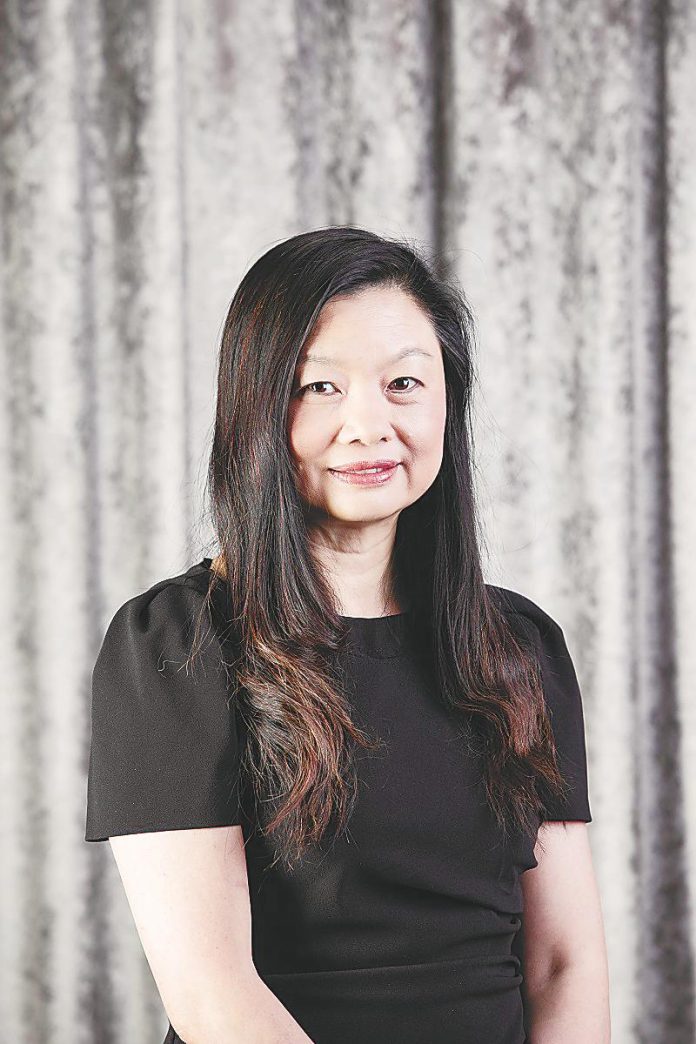KUALA LUMPUR: Global packaging company Amcor views Malaysia as a strategic cornerstone in its broader Asia-Pacific healthcare strategy, particularly in response to the region’s growing demand and evolving trade dynamics.
“Even amidst ongoing shifts in global trade, we recognise Malaysia’s strategic advantage with its
strong manufacturing base, skilled
talent pool, and business-friendly environment,” Amcor Flexibles Asia Pacific vice-president of healthcare Laura Wong (pic) told SunBiz.
She said Amcor’s expansion in Malaysia complements the company’s regional growth initiatives, including the acquisition of MDK in China, the establishment of a grid lacquer paper unit in India, and the construction of a co-extrusion blown film and printing plant in Singapore.
To note, the New York Stock Exchange-listed Amcor has completed the construction of its plant for coating advanced healthcare packaging in Selangor –the first in Asia to use state-of-the-art air knife coating technology.
The facility aims to improve the region’s healthcare customers’ access to premium sterile packaging solutions, expanding Amcor’s healthcare packaging operations, making it the first in Asia to produce both top and bottom substrates for medical device packaging at a single site.
Wong said Amcor’s investment in this new facility underscores the company’s long-term confidence in Malaysia as an important hub in the global healthcare supply chain.
She said these expansions and investments reinforce Amcor’s dedication to delivering innovative, high-quality healthcare packaging solutions and fortifying Malaysia’s role in the global healthcare supply chain.
When asked how Amcor foresees Malaysia’s healthcare manufacturing sector adapting to protect its global competitiveness with the 24% US tariff on Malaysian goods, Wong said the domestic healthcare manufacturing sector, including the medical packaging industry, can adapt by accelerating localisation, innovation, and diversification of trade partnerships.
“To protect global competitiveness, we will want to increasingly prioritise enhancing supply chain resilience through localised production to reduce dependencies on external markets and enhance cost efficiencies,” she said.
“The industry is also increasingly leveraging advanced manufacturing technologies, automation, and smart production practices to maintain high standards and productivity while controlling costs.
“Malaysia’s skilled workforce combined with a stable economic and political environment positions the country as an attractive hub for healthcare manufacturing and a strong contender to other established manufacturing hubs globally.
“Additionally, the proactive steps being taken by the Ministry of Health, such as exploring alternative supply sources for essential medicines and medical devices from countries such as India and China, reflect a broader strategy to mitigate tariff impacts and safeguard the country’s healthcare supply chains,” said Wong.
She also noted that Malaysia is carving out a niche in the medical device sector by focusing on
higher-value and innovation-driven products.
The government’s New Industrial Master Plan 2030 (NIMP) identifies medical devices as a key growth area, aiming to strengthen product design, development, and integrated services.
To support this, the government is offering targeted policies and tax incentives and developing specialised high-tech parks, all while promoting Malaysia as a leading manufacturing hub in the Asia-Pacific region.
“Future-proofing Malaysia’s position in the global healthcare value chain requires strong partnerships and a robust, connected ecosystem, and that is precisely where Amcor is focused.
“Our new facility in Malaysia complements our existing facilities in both Malaysia and Singapore,” Wong said.
“Together, they form a fully integrated network that allows Amcor to serve as a one-stop solution provider – offering both top and bottom webs, converting, and
bag-making capabilities under one regional umbrella.
“This proximity to key healthcare markets in Asia ensures faster response times, supply chain resilience, and enhanced service levels for our partners.”
Amcor is the first in Asia to introduce advanced air knife coating technology at its new Selangor plant, enabling precise control of coating thickness for protecting sensitive medical products and meeting global regulatory standards.
Amcor uses smart manufacturing practices such as automated quality control, real-time data monitoring, and predictive analytics to enhance product consistency, improve efficiency, and support continuous quality improvement.
Wong said these technologies will position Amcor and Malaysian manufacturers to remain competitive in the global healthcare packaging market.








